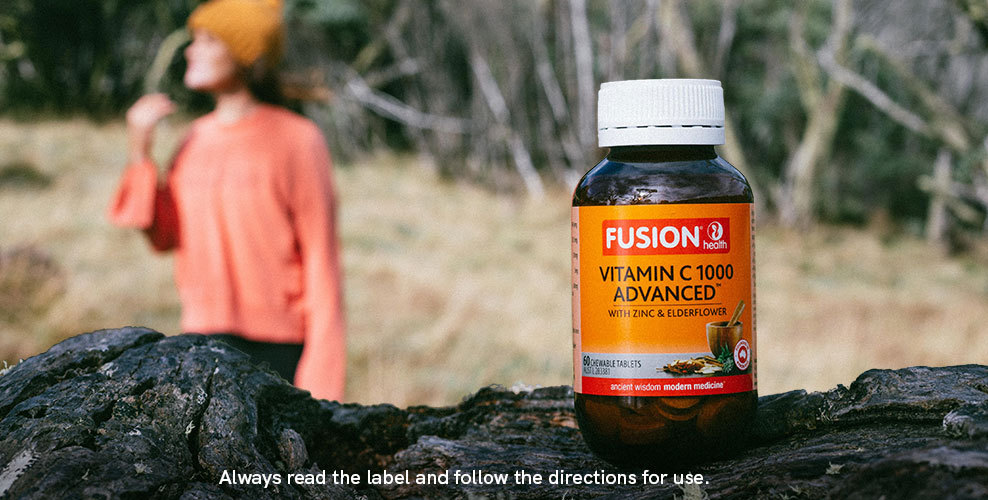Five reasons to take vitamin C

You know that vitamin C is good for your immune health, but did you know it does much more than that? In fact, there are many reasons that you might want to consider taking vitamin C. Here are some of our favourites.
1. Vitamin C supports immune function
As you're probably aware, vitamin C is a nutrient that contributes to the healthy functioning of the immune system. For this purpose it's often taken in combination with zinc.
Vitamin C also supports the immune system’s actions in fighting illness.
2. Vitamin C is a potent antioxidant
As one of the body's important water-soluble antioxidants, vitamin C helps to reduce the formation of free radicals in the body, which are volatile molecules generated during your normal metabolic processes, as well as by excessive exposure to pollutants in your food, water or environment.
When present to excess, free radicals may affect the healthy functioning of your cells and body tissues, so maintaining adequate antioxidant intake is an important component of a healthy lifestyle.1
When used as an antioxidant, vitamin C is again often combined with zinc, which also has antioxidant properties.

3. Vitamin C is essential for collagen production
Another reason that vitamin C is important is because it's needed for the production of collagen, a specialised form of connective tissue that helps keep your skin, blood vessels, muscles and tendons in your body strong and flexible.
4. Vitamin C aids wound repair
In addition to maintaining the collagen components of skin tissue, vitamin C is important for the body's healing processes when skin is damaged and needs to be repaired.
In this aspect of its function, it again works closely with zinc, which also supports wound healing.
5. Vitamin C helps to produce neurotransmitters
Neurotransmitters are chemical messengers that are used by the brain and nervous system to transmit messages to different parts of the body.
Vitamin C is required for the production of some of the body’s most important neurotransmitters, including serotonin and norepinephrine, which is sometimes referred to as noradrenaline.
Vitamin C and diet
There are many foods that contain vitamin C, mainly fresh fruit and vegetables, which you can include in your diet. Some of the richest sources include:
- Brocolli
- Sprouts
- Citrus fruits
- Kiwi fruit
- Berries
- Red, yellow and green capsicum
Both cutting and heating vitamin C-rich foods affects their vitamin C content, so either eat them raw or lightly cooked, or only cut them right before you eat them.

Fusion Vitamin C 1000 Advanced: high potency vitamin C + zinc
Vitamin C is naturally acidic, which means that high doses may cause tummy trouble for some people. Fusion Vitamin C 1000 Advanced has been specially formulated with ascorbic acid, calcium ascorbate and sodium ascorbate. By blending ascorbic acid with non-acidic forms of vitamin C, the formula is buffered to be gentler on the stomach than ascorbic acid alone.
Because vitamin C and zinc work closely together in so many ways, Fusion Vitamin C 1000 Advanced also contains zinc glycinate, which is more readily absorbed and utilised by the body than other forms of zinc (such as zinc sulfate or zinc gluconate).
Always read the label and follow the directions for use.
References
- Lobo V, Patil A, Phatak A, et al. Pharmacogn Rev 2010;4(8): 118–126.i
















